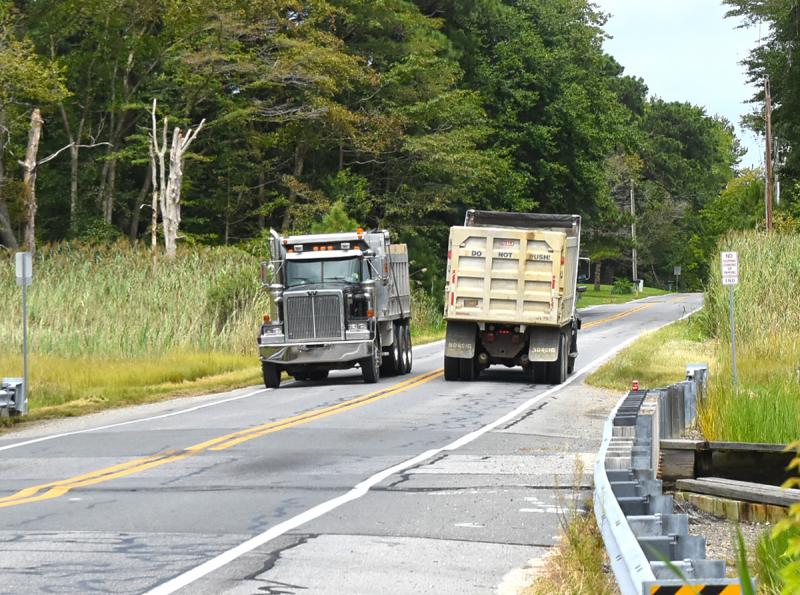Lewes to discuss truck routes with DelDOT
The City of Lewes will begin talking to the Delaware Department of Transportation to develop prescribed routes for vehicles of a certain weight.
Additionally, mayor and city council voted Dec. 13 to establish a policy to work with developers to institute routes for construction vehicles while a project is under construction.
Councilman Tim Ritzert brought the issues to council’s attention after witnessing several dump trucks using city streets, particularly West Fourth Street, on the way to and from the Lewes Waterfront Preserve development near the Canary Creek bridge during a three-week period in November when New Road was closed for construction of a new roundabout in front of the Tower Hill development.
“There was a train of dump trucks carrying loads of dirt through the city to deliver to that job site,” he said. “Then in turn they were coming back through the city to get back out of town.”
While many followed the prescribed route to use Pilottown Road, Ritzert said, many instead utilized West Fourth Street. While a route may have been clearly identified on paper or at workshops, he said, it was not supported with signage to discourage trucks from driving through the residential neighborhoods along West Fourth Street.
“Their detour signs were woefully inadequate and inaccurate,” he said.
Ritzert said he doesn’t want the focus of his proposal to be about what happened with Lewes Waterfront Preserve, but to use it as an example in discussions with DelDOT and to develop a policy going forward.
“We are all aware there are a number of projects already on the books that have been approved or are subject to being approved during our next 12 months,” he said. “What became clear to me is we could help our neighbors, the residents of our community, if we actually designated routes that would hopefully move the truck traffic out of residential areas and onto state-owned streets.”
State-owned streets in Lewes include Kings Highway, Savannah Road, New Road, Pilottown Road, Cedar Street, Cape Henlopen Drive and a portion of Gills Neck Road. Freeman Highway is owned and maintained by the Delaware River and Bay Authority.
“The state-owned roads are primary roads, and I think it’s appropriate that these kind of heavy-loaded trucks be placed on those roads to the extent possible to help preserve our neighborhoods, keep our residents safe and to protect our city-owned streets,” Ritzert said.
He said the intent is not to include all trucks, but to focus on vehicles of a certain size or including a certain number of axles.
Ritzert has the support of council.
“[Ritzert] raised a very important issue, identified a real threat, and it’s not going away this year, next year or the year after. It’s going to be an issue for a while, and I think we need to get our arms around it and have the right policy,” said Councilman Khalil Saliba.





















































